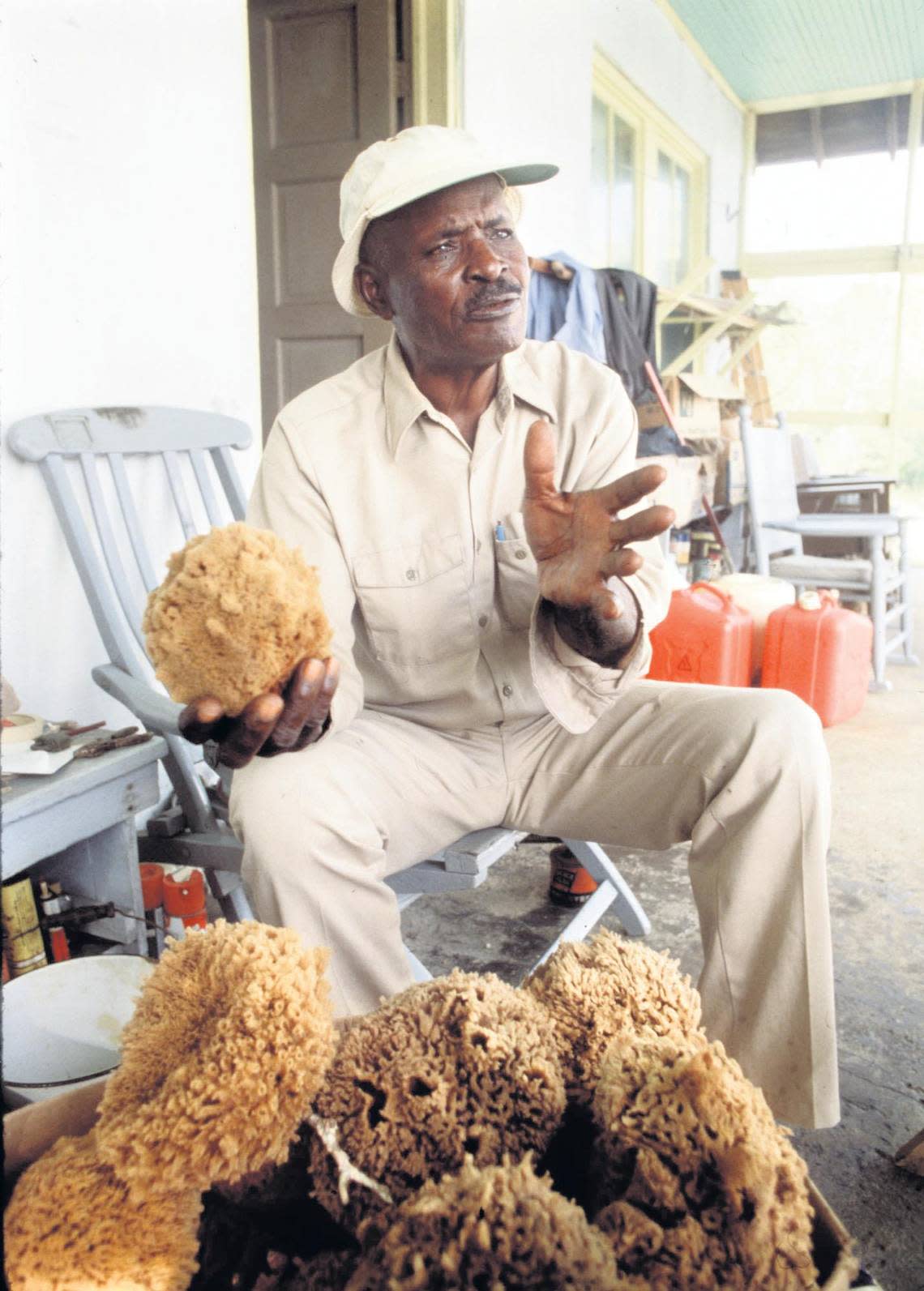Celebrating Lancelot Jones Day and saving Virginia Key Beach Park: Lessons remembered | Opinion
In 2014, Oct 13 was officially designated “Lancelot Jones Day” by the State of Florida. A year before, the Jones Family District was listed on the National Register of Historic Places, the official list of the nation’s historic places worthy of preservation. The year after, the Miami-Dade County Commission by Resolution declared the entrance to Biscayne National Park “Sir Lancelot Jones Way.”
Before any of those events, at family gatherings, one of my mother’s brothers often talked about a patient of his who lived “on the bay.” My uncle was Dr. James K. Johnson, Sr., a medical doctor whose family practice was located in Miami’s Colored Town, now called Overtown. And the patient was Lancelot Jones.
I later learned that our families were members of the same pioneer congregation in Overtown. Mount Zion Baptist Church was founded in 1896, the year the City of Miami was incorporated.
For decades, when Lancelot Jones visited Overtown before returning home to Porgy Key, he ate meals at a well-known Bahamian restaurant, Seafood Cafe, that was owned and operated by Margaret Jane Thompson Mackey.
Who was Sir Lancelot Jones?
Lancelot Jones (1898-1997), was a Black American. His mother, Mozelle Albury, was born on Harbour Island, Bahamas, and his father, Israel Jones, was born in North Carolina nearly a decade before slavery ended.
According to National Park Service reports, Lancelot’s father, Israel, was a former foreman and caretaker. Israel traveled to South Florida to farm, and in 1897, he purchased Porgy Key, an island on the southern edge of Caesar Creek. There he moved with his wife and son, Arthur, into a house built by the previous owner. In 1898, the same year son Lancelot was born, Israel purchased Old Rhodes Key island. Later, in 1911 Israel purchased Totten Key island and expanded his pineapple and key-lime farming with the assistance of his two sons fondly called King Arthur and Sir Lancelot. Fruits and vegetables were grown for the family and shared with friends.
They grew and exported pineapples and key limes; every week, they carried 250 bushels to Miami, eventually building one of the largest pineapple and key-lime businesses on Florida’s east coast.
The destructive 1926 hurricane curtailed their production. Later, when the environment for growing limes in Mexico turned out to be better than Florida’s, the family closed their business.
Israel Jones died in 1932 at age 73. The oldest son, Arthur, served in the Navy in World War I and in the Army in World War II, and died in 1966; their mother died after that. Lancelot fished for sponges, taught visiting schoolchildren, taught bonefishing to visitors, and was hired as a fishing guide for wealthy patrons and three U.S. presidents: Herbert Hoover, Lyndon Johnson and Richard Nixon.
Lancelot and Arthur were once the second-largest property owners within Islandia, a municipality comprising a chain of 32 islands. Beginning in the 1960s, investors who incorporated the city of Islandia planned to develop the islands.

With his sister-in-law, Kathleen, Lancelot resisted an attempt by investors to develop the islands with high-rises, shopping centers and beachfront homes. Instead, Lancelot Jones sold the family property of 277 acres for $1.2 million, below market value, to the National Park Service. He was granted the right to live out his remaining years on the island.
After a fire burned his home and, later, after Hurricane Andrew hit in 1992, he left the island, relocated to Miami, and lived with friends until his death in 1997 at age 99.
The area was declared a national monument in 1968, and in 1980, it was declared a national park. Local conservationists helped champion efforts that created Biscayne National Park. The Jones family legacy was uncovered by Ranger Brenda Lanzendorf.
In 2014, then-state Sen. Dwight Bullard advocated for State Senate Bill 1158 that resulted in the designation of Sir Lancelot Day on Oct. 13th. The idea for the honor was presented by National Parks Conservation Association Program Analyst Jackie Cruet and inspired by the Mahogany Youth and Scuba divers. The intent was to make it a recurring annual honor in Florida.
Biscayne National Park creation
Speaking at the dedication of the Sir Lancelot Jones Way, then-Miami-Dade County Commissioner Dennis C. Moss said in part that the decision made by Sir Lancelot not to sell to investors contributed to the area becoming Biscayne National Park.
Other supporters included Homestead city officials, Park Rangers, South Florida Community Partners, Diving With a Purpose, national parks and public lands advocates: Frank and Audrey Peterman, and other local conservationists.
Gene Tinnie, a former chair of the Virginia Key Park Trust, was among the supporters honoring the unsung legacy of Lancelot Jones.
In the 1990s, Tinnie joined a 15-member group formed as a reaction to a city proposal to allow commercial development at Virginia Key. According to Tinnie, ”Had that happened people would have been deprived of a public park.” A community stalwart, Tinnie attended a recent city budget hearing to support the continuing work of the Virginia Key Park Trust.
Also in attendance at the budget hearing was Miami native and former member of the Virginia Key Park Trust Board, Enid Curtis Pinkney. She spoke against the city turning the Virginia Key Beach Park into an eco-tourist camp and also against the development of hotels in the park.
Ironically, this year, the city’s next budget hearing to consider the efforts of the Virginia Key Beach Trust is scheduled for Oct. 13 — the day Sir Lancelot Jones is celebrated. Conservationist Audrey Peterman defines the lesson learned: The time has come for these important legacies to be recognized for the uplift, unification and inspiration “for the benefit of this and future generations.”

Dorothy Jenkins Fields, Ph.D., is a historian and founder of the Black Archives, History & Research Foundation of South Florida Inc.